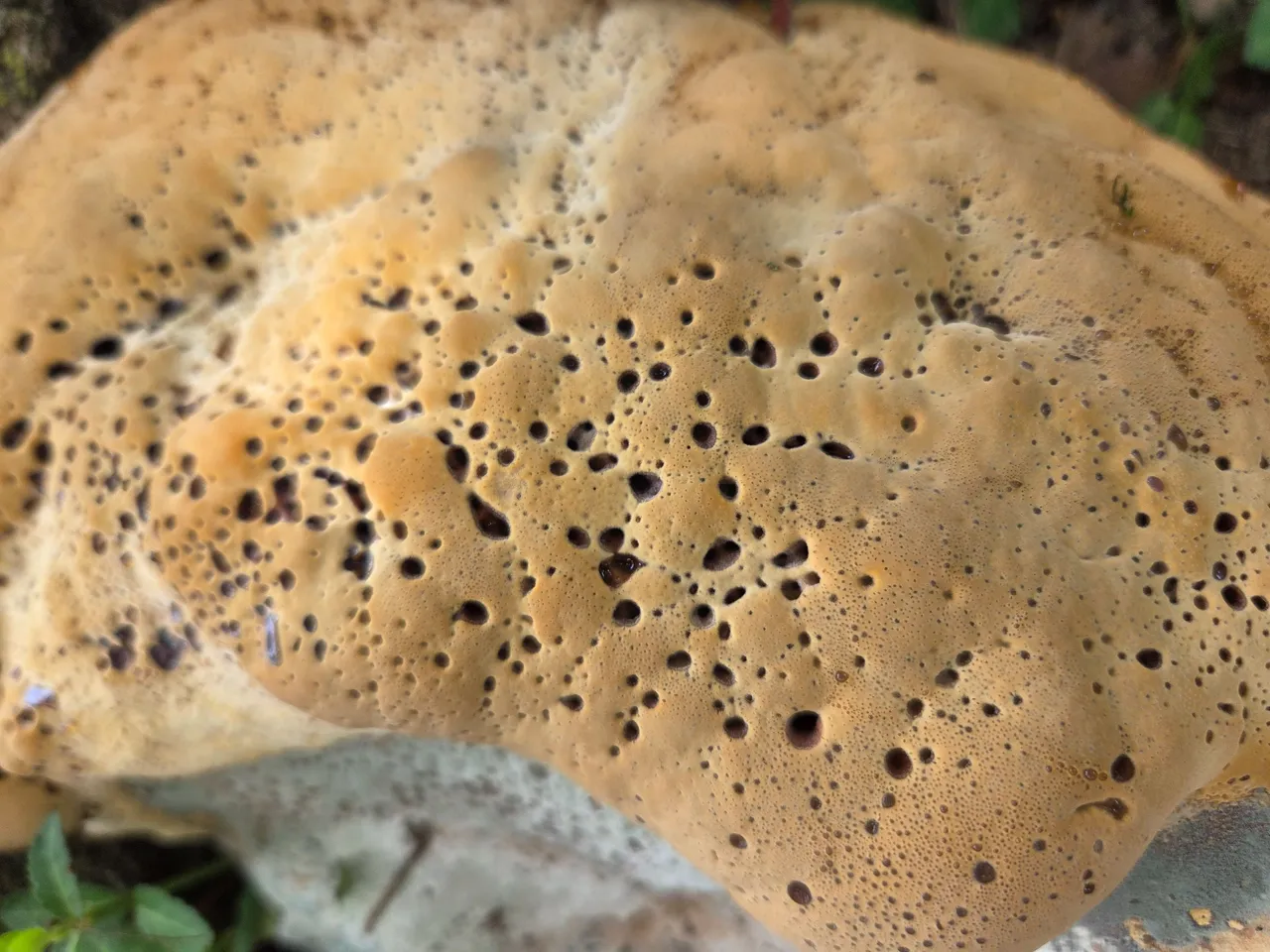
I found this guy while walking my daughter around the neighborhood. See immediately said, look bread!
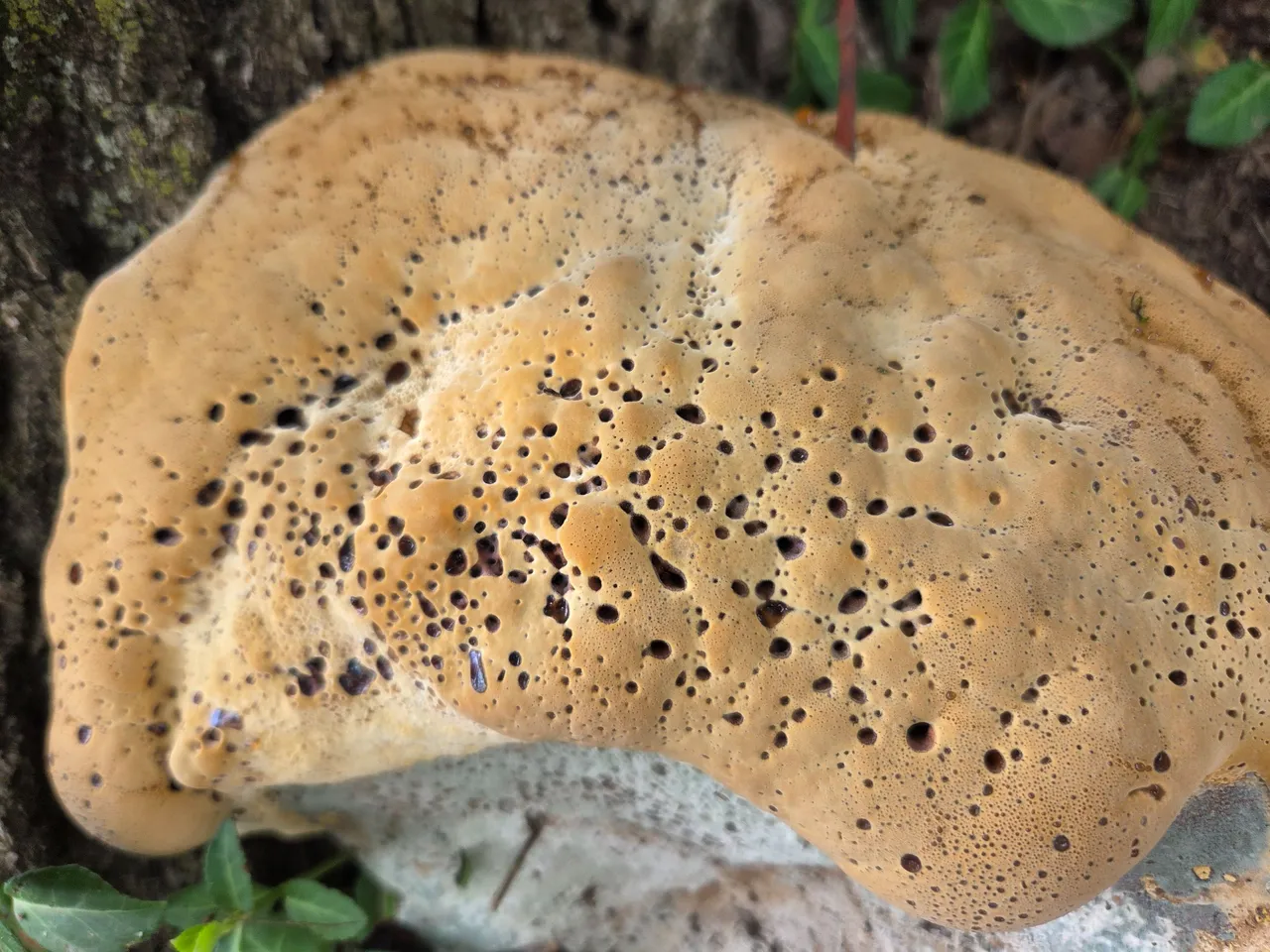
It does kind of look a bread roll from a distance. This is Inonotus dryadeus with a common name of weeping polypore. They spring up around the bases of hardwood trees and have lots of guttation. Eventually they dry up into a black charcoal skeleton that can be used to start fires. Here you can see the guttation has already dried up leaving holes and it will start turning black and dehydrated looking soon.
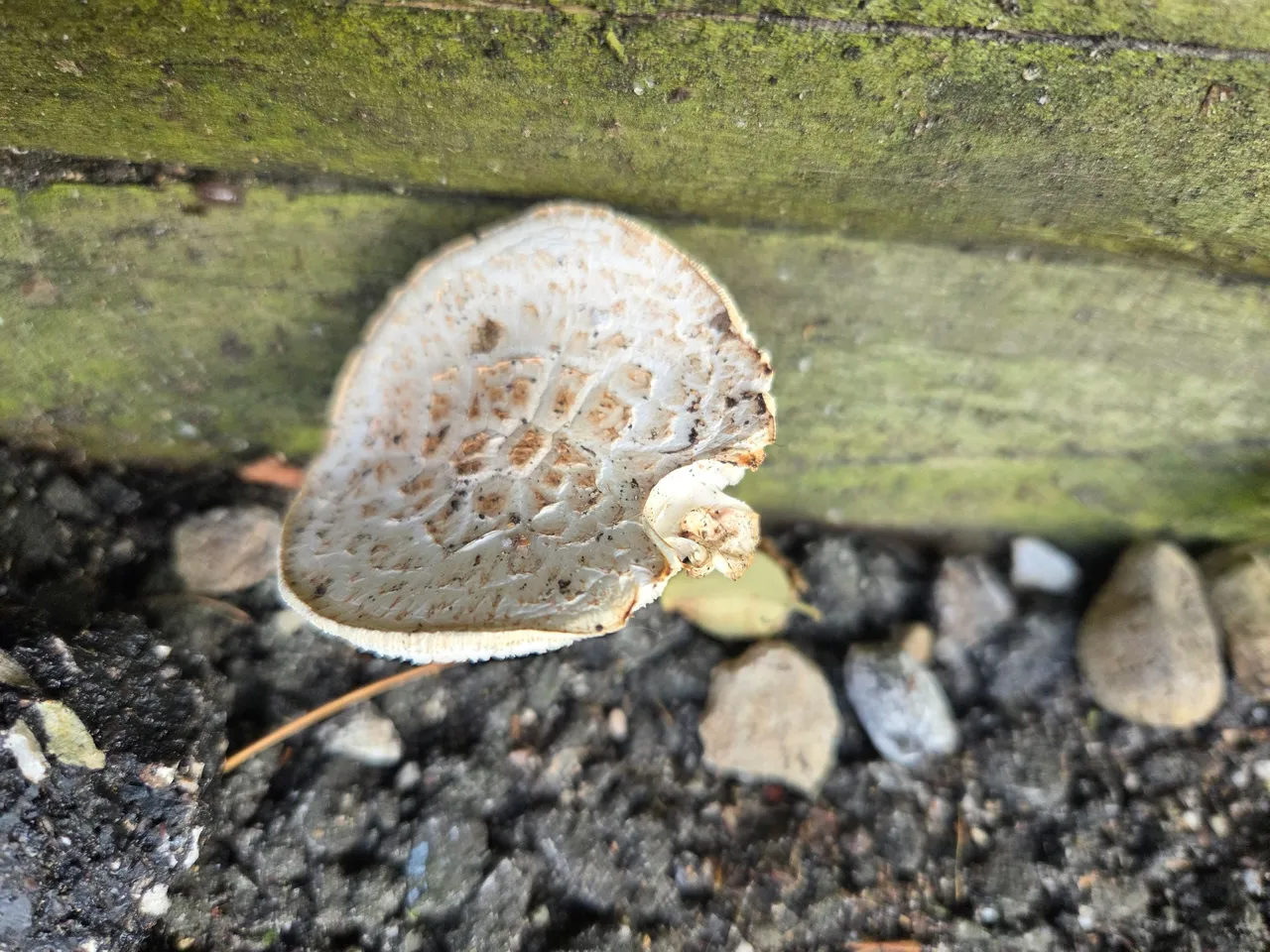
Look at this city slicker managing to grow out of blacktop.
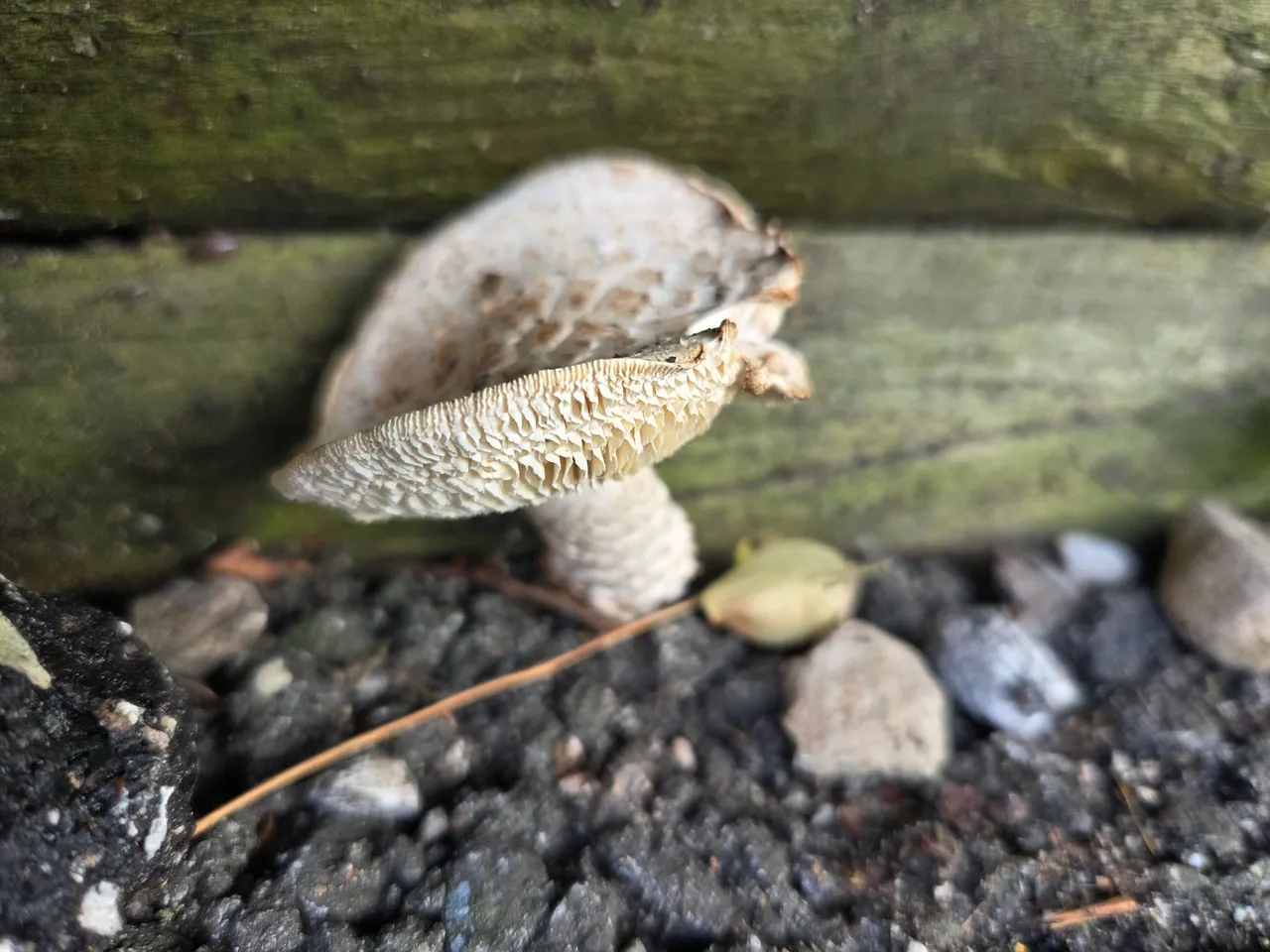
Many mushrooms can feed off petroleum products and can even be used to remediate petroleum waste.
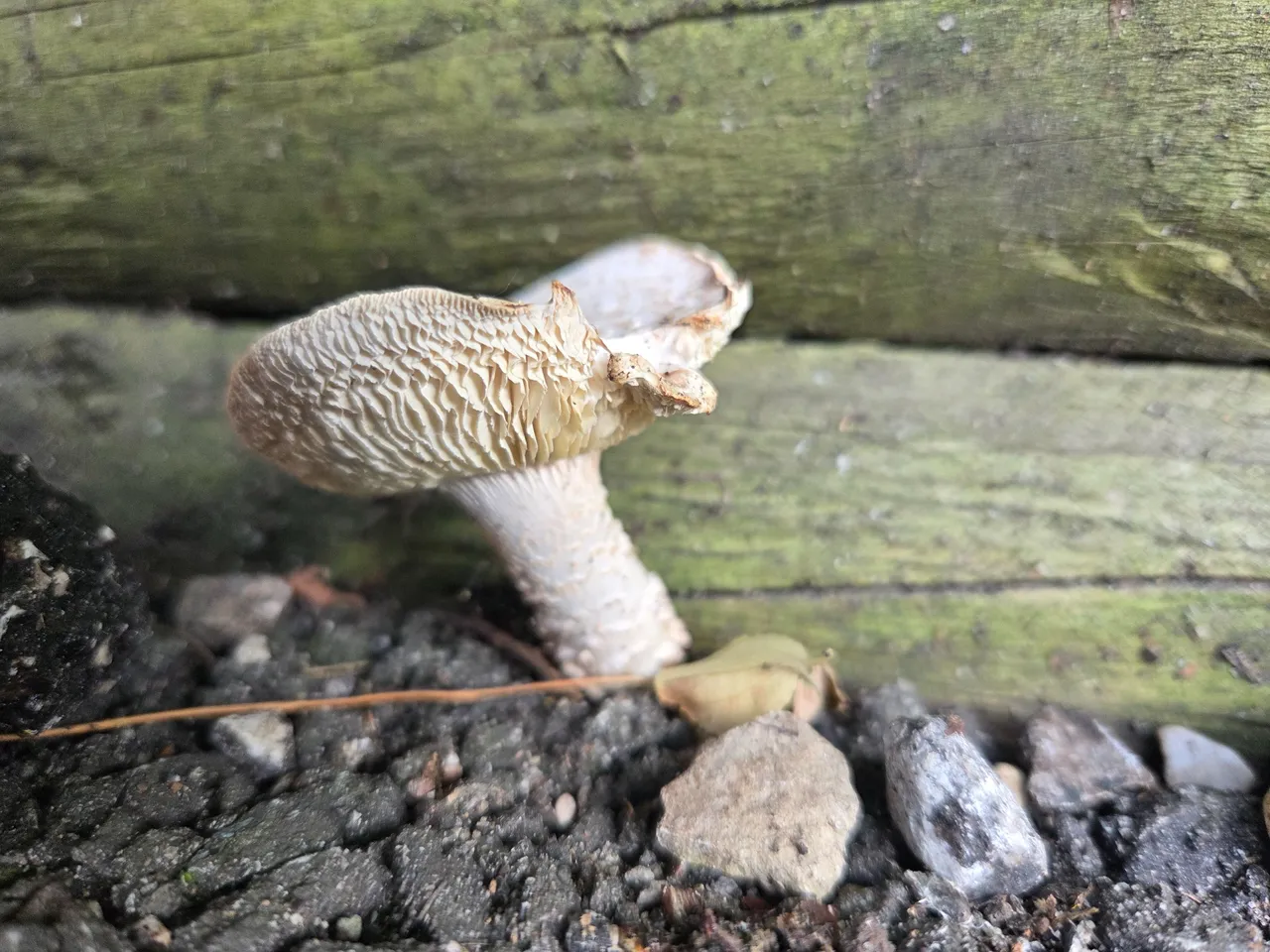
As for the ID of this guy, the roughness of the cap and stem is kind of a clue. I immediately though it was an edible pavement mushroom aka (Agaricus bitorquis) but the gill color is wrong and the rough cap and stem are wrong too. It mostly looks like Amanita thiersii but this one lacks a ring around the stem so it remains unidentified for now, womp.
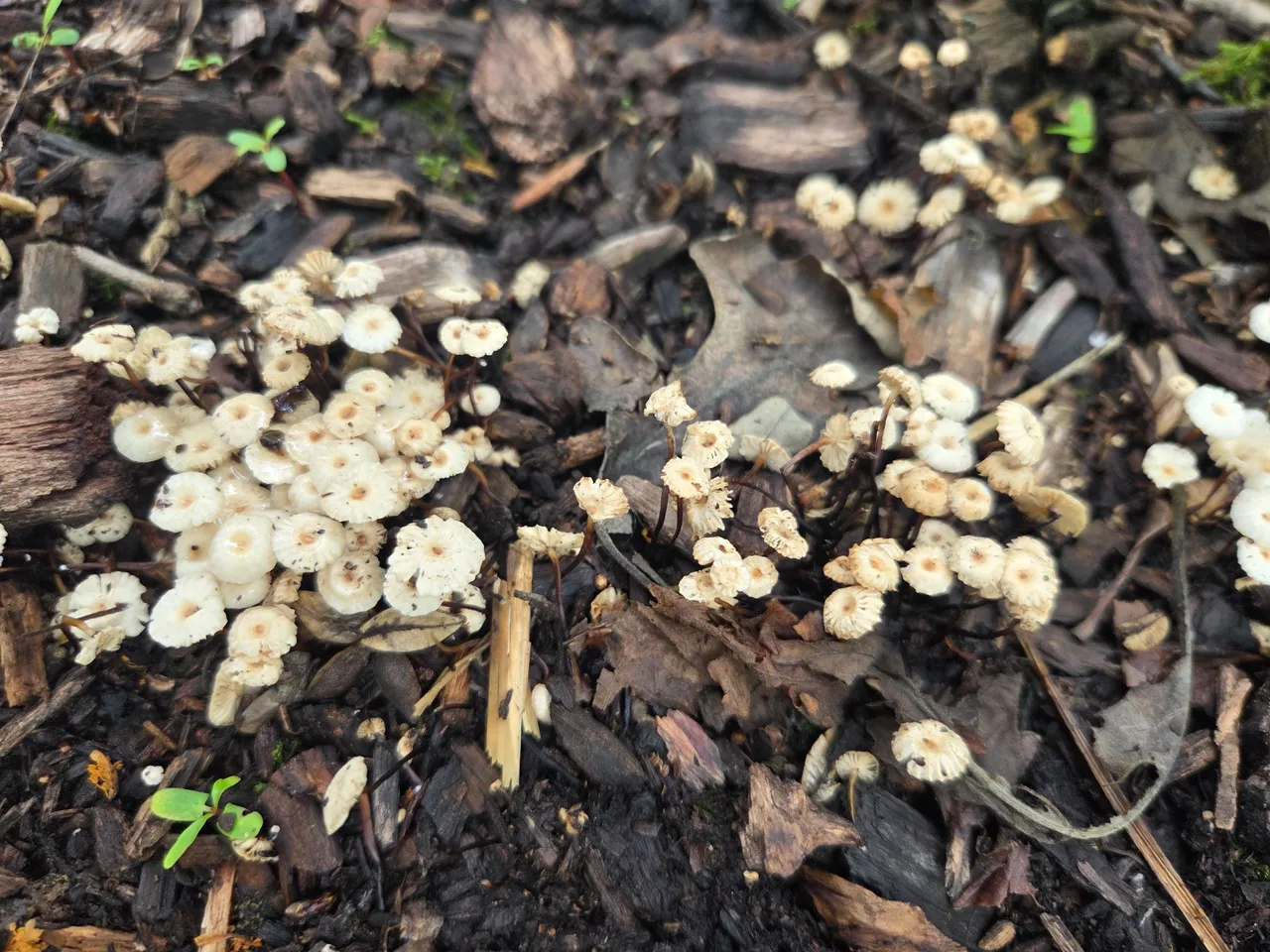
Look at all these tiny little mushrooms.
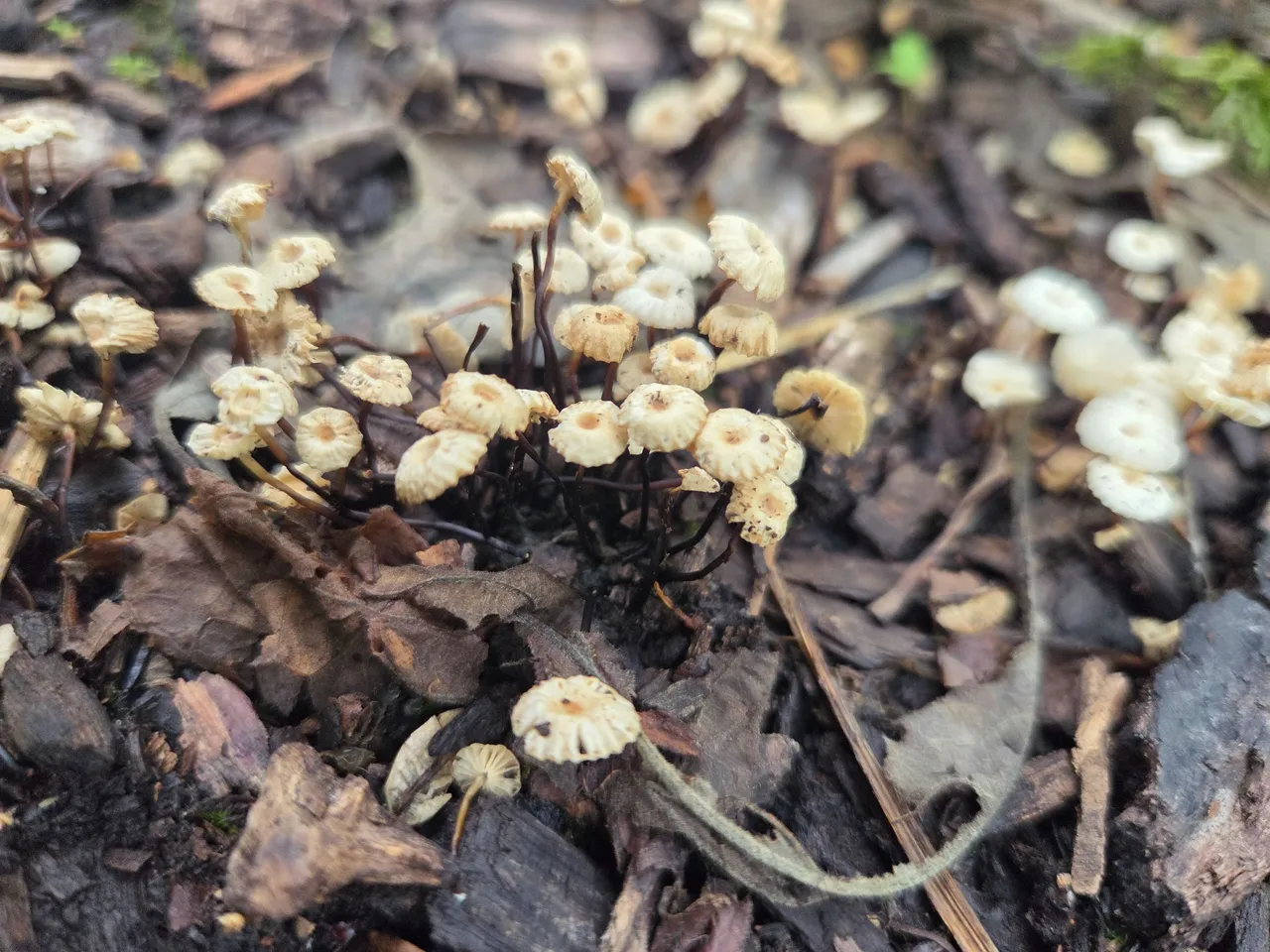
Their common name is twig mushroom as you see them growing on twigs and bark. They are also very tiny and delicate.
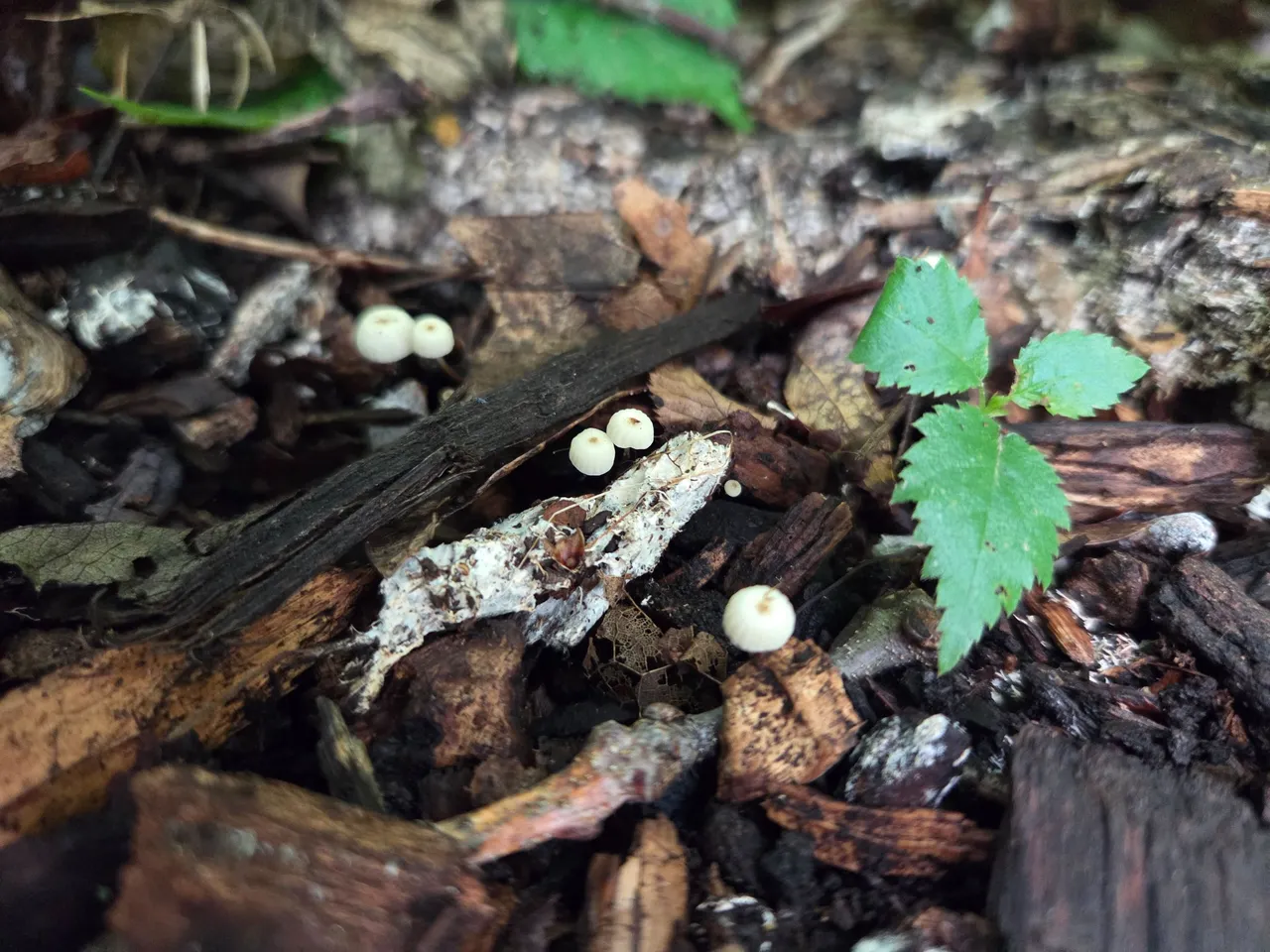
Their Latin name is Marasmius rotula and another common name is Collared Parachute. I haven't found any edibility info on them because they are way too small to even bother harvesting most likely.
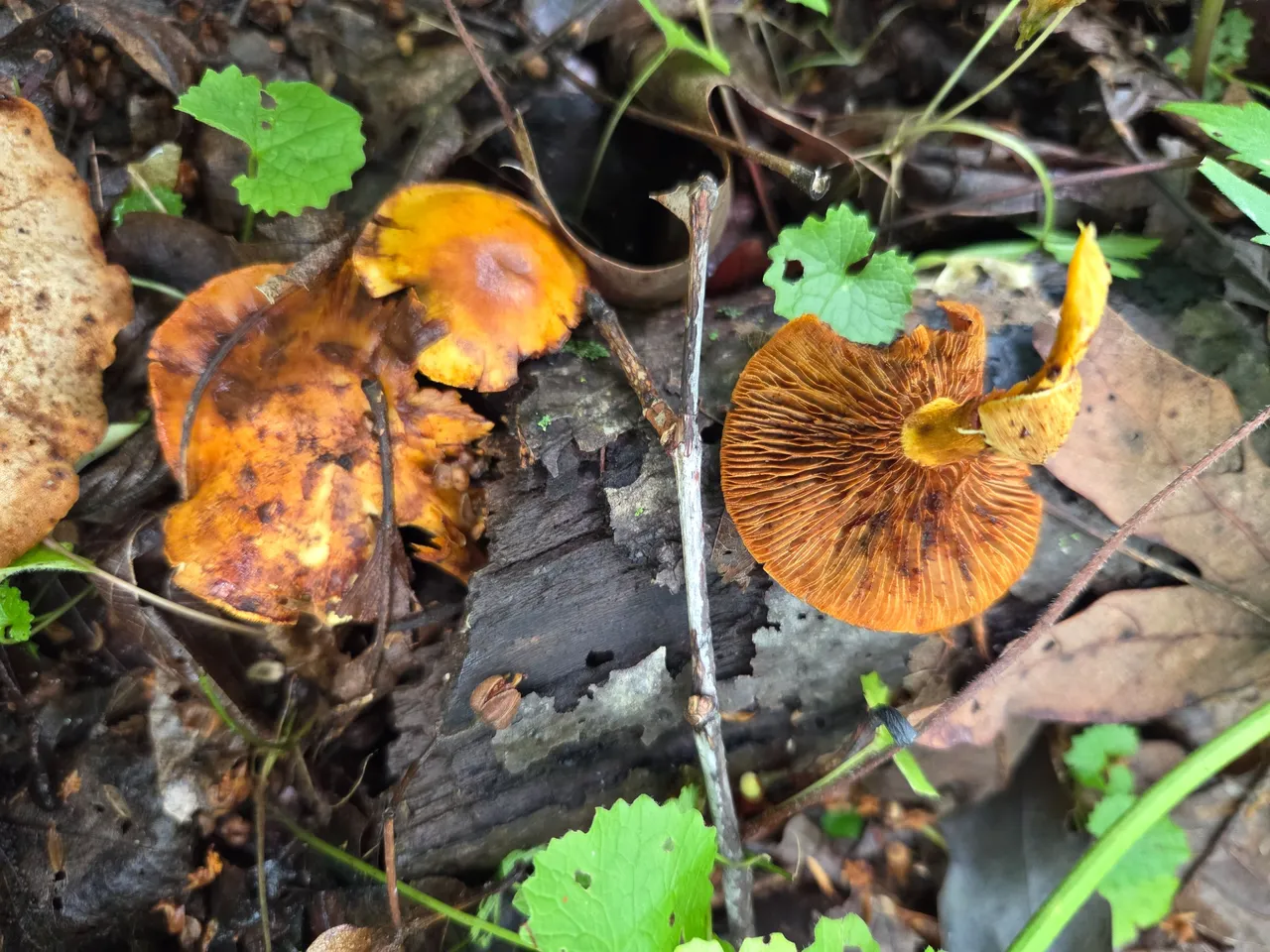
These orange guys look quite familiar like a lawnmower mushroom in shape. But their bright orange color doesn't fit the typical brown mower mushroom color. I'm still trying to figure them out as I've seen them all over the place this summer.
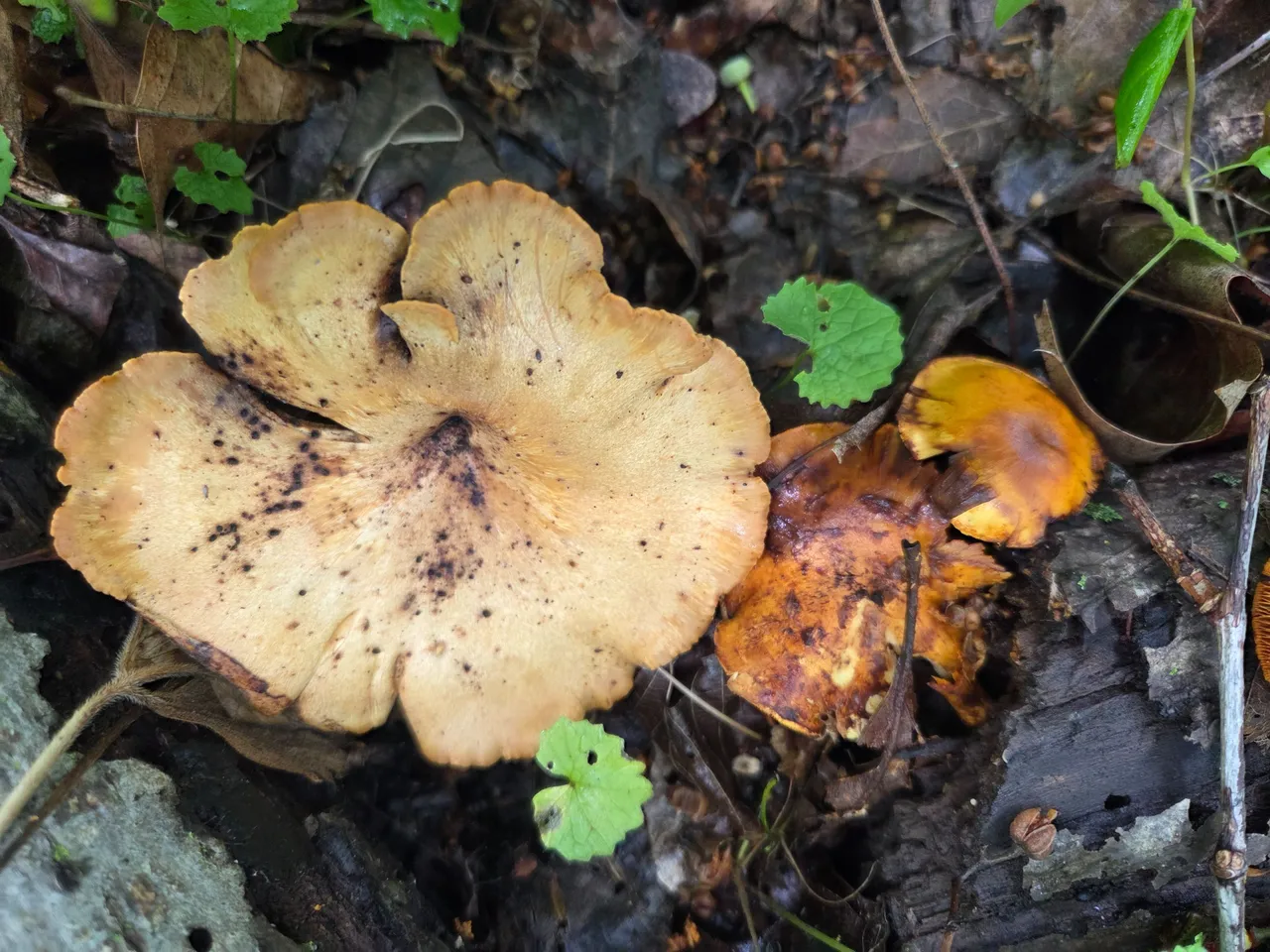
On the left is Polyporus badius aka the black footed polypore. They are quite large and have a distinct feature when you flip them over.
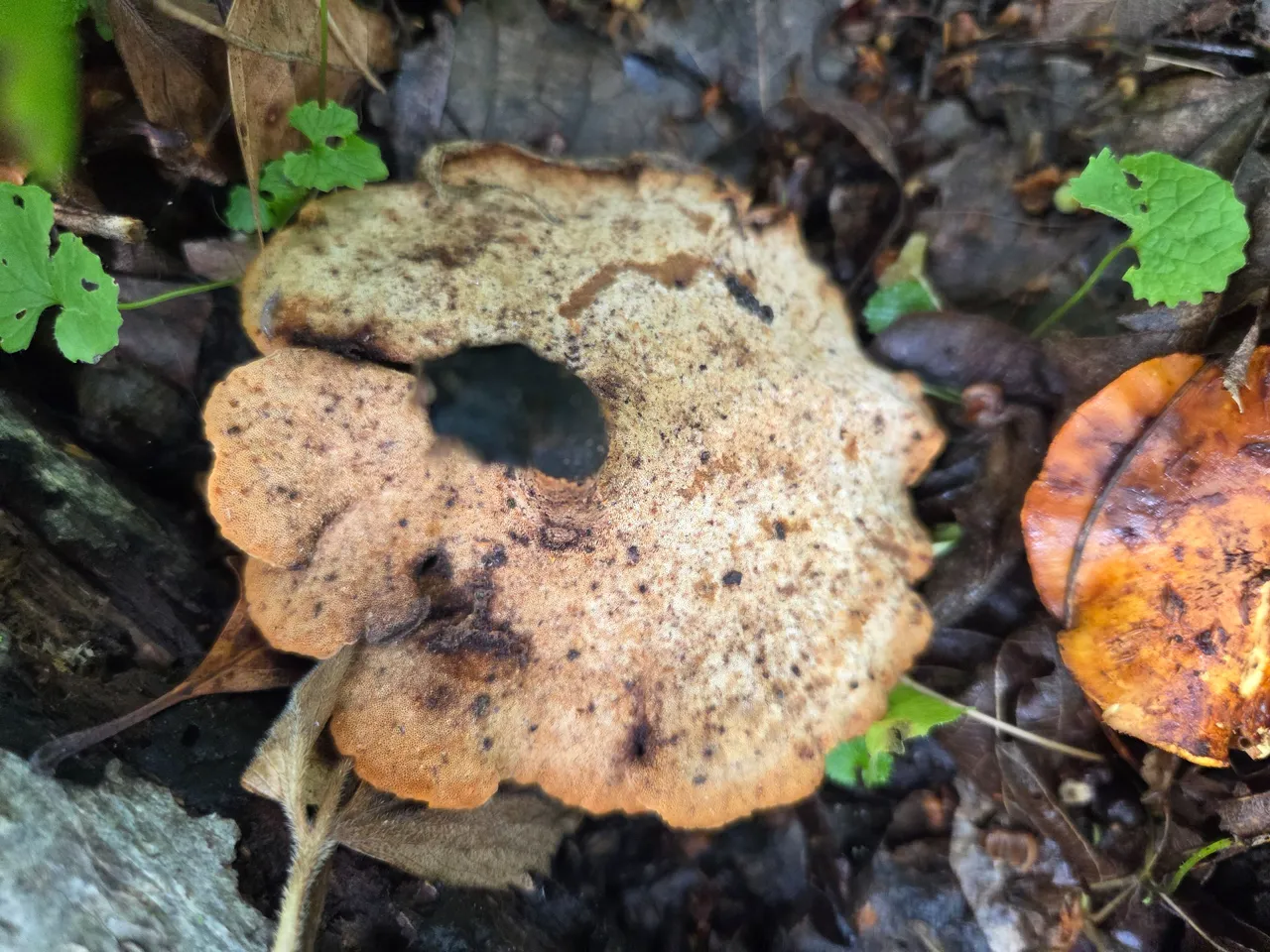
At first glance you would think the black footed polypore has gills but once you see the pores instead of the gills that is one key to identification. The other obvious key is the black foot at the base of the stem. It is pitch black and these are very tough mushrooms. Sadly not edible probably due to their tough texture.